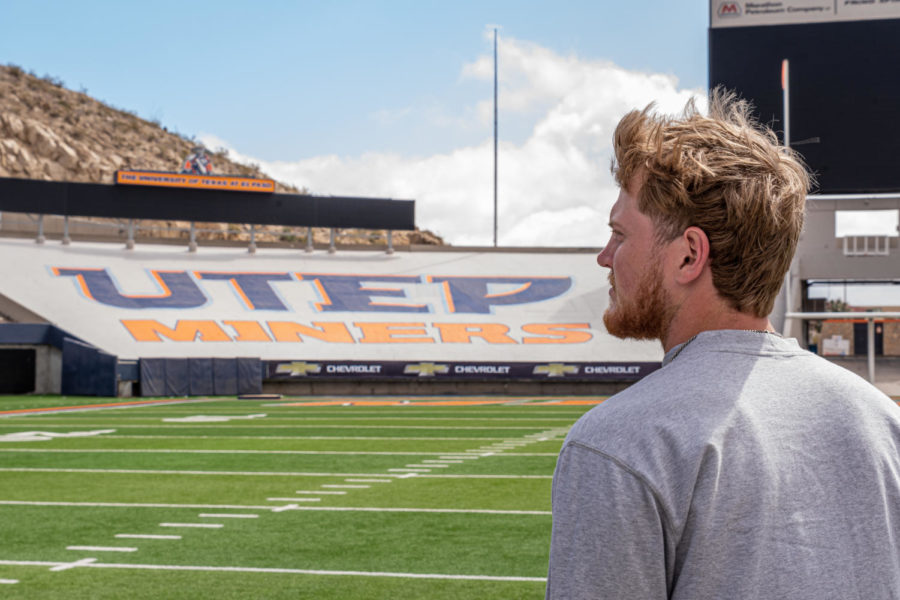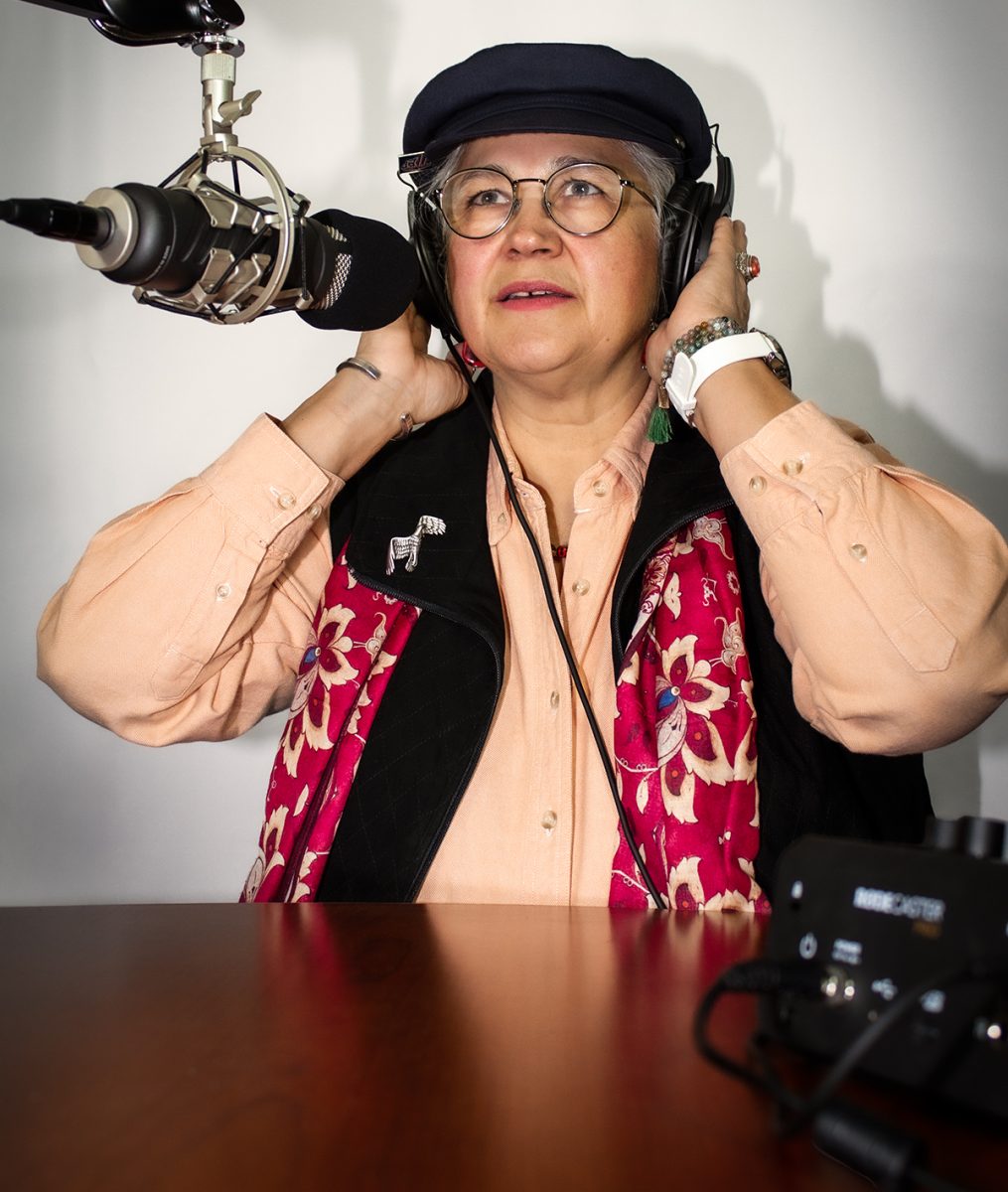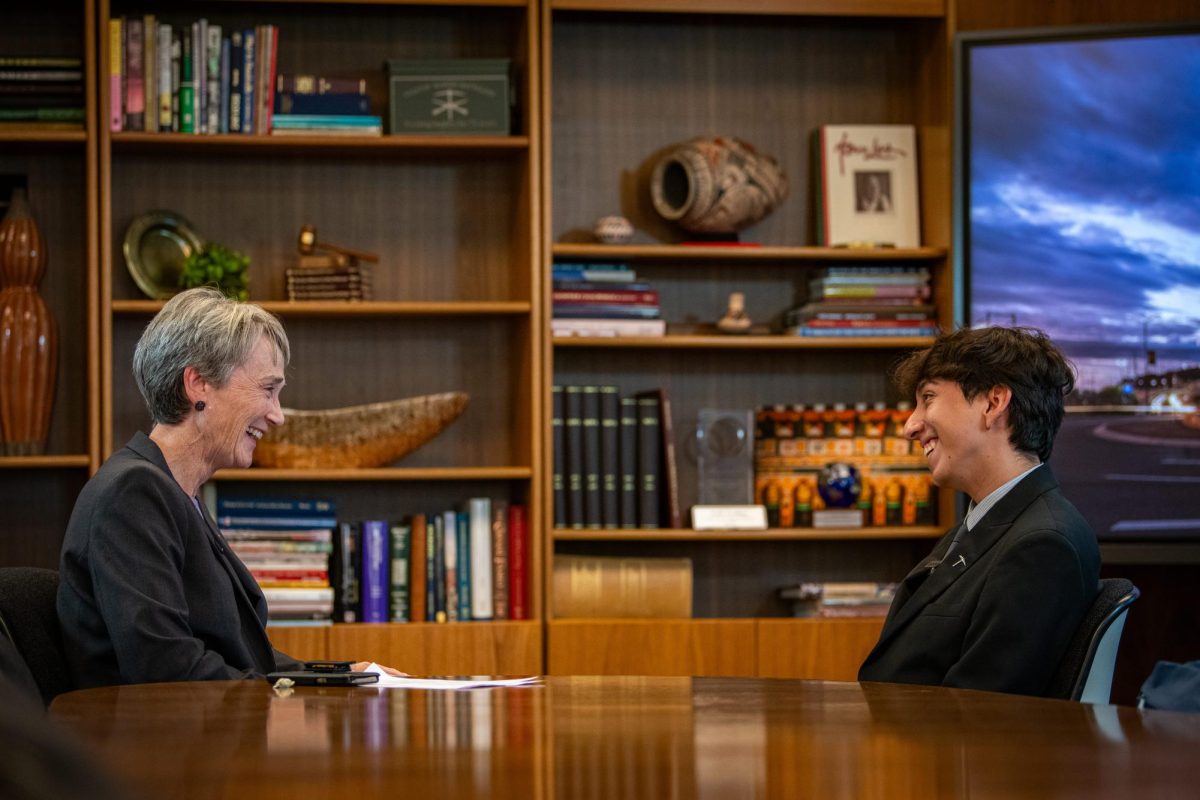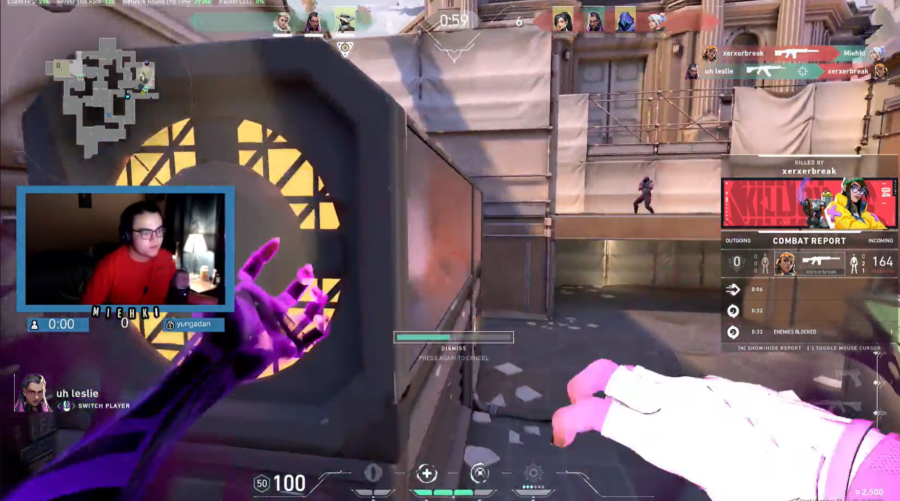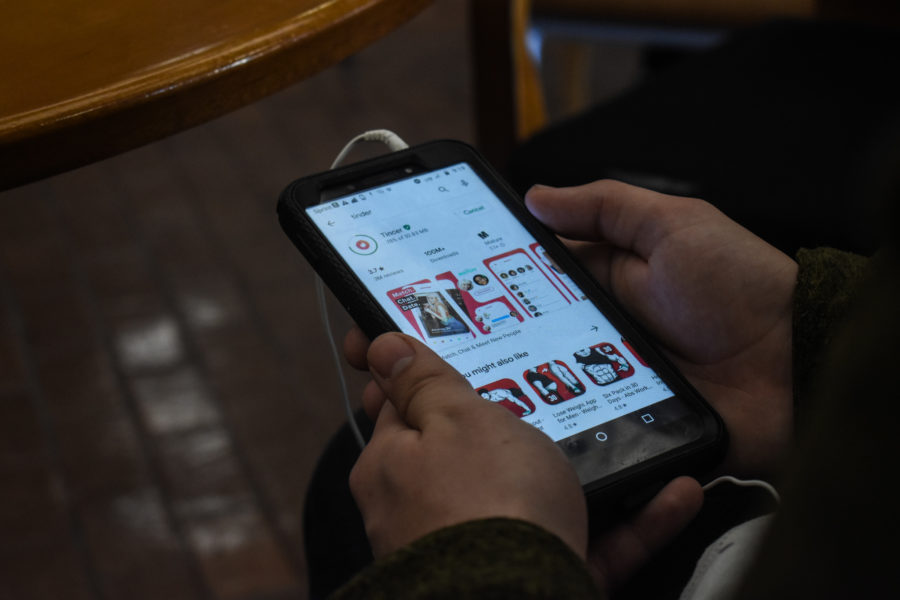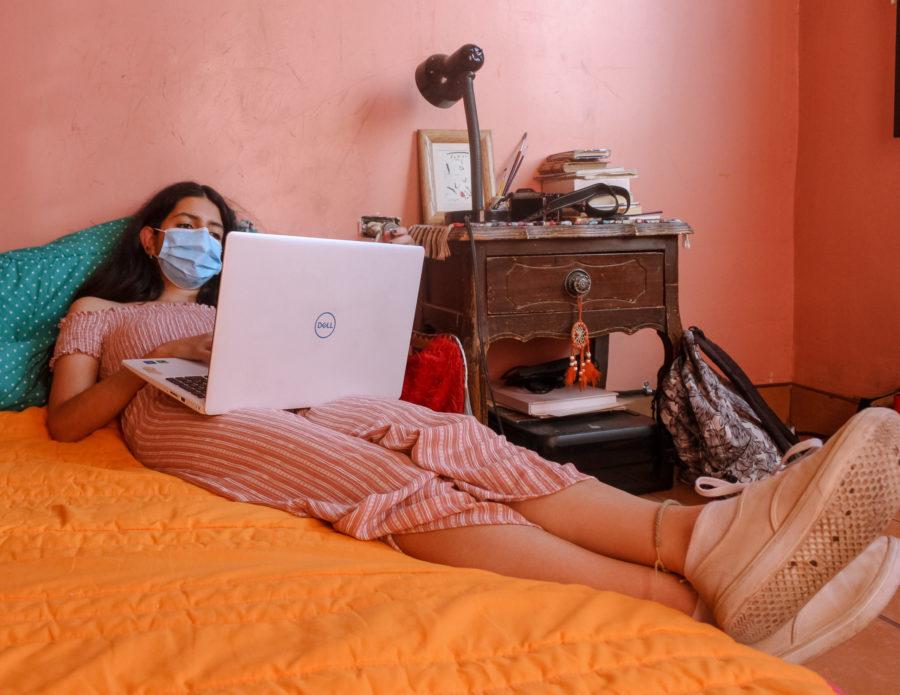UTEP students cope with the toll of COVID-19’s impact on their mental health while trying to finish their classes successfully.
According to the National Institute of Mental Health , nearly one in five U.S. adults live with a mental illness ranging from mild to severe. However, according to the Centers for Disease Control and Prevention (CDC), the impact of COVID-19 has considerably amplified symptoms of anxiety disorders and depressive disorder, especially April through June 2020, compared to the same period in 2019.
An influx of worries
According to a Texas A&M study: “Effects of COVID-19 on College Students” Mental Health in the United States: Interview Survey Study,” the pandemic has brought new “stressors” for students. Those of which included the fear and worry for oneself or loves ones, constraints on physical movement and social activities due to social isolation, and sudden and radical lifestyle changes.
Anxiety, depression or any other mental illness can affect students’ performance, motivation, concentration and social interactions, these are crucial factors for students to succeed in school.
Borderland Health Services owner Jorge Medina says that there’s a variety of reasons why mental health has been affected so much. According to Medina, the main reason is change.
“People usually don’t like change, causing disturbance by struggling to live by this new way and the new norms,” Medina said.
Students had to adapt to a new way of learning, not having in-person contact with professors and classmates. This was a challenge and change that impacted students.
“Students now not only need to learn math, but also learn how to work learning Zoom,” Medina said.
As COVID-19 cases increased, El Paso officials applied tighter restrictions to the border to limit travel to only essential travel.
Abena Apraku, certified in psychiatry by the American Board of Psychiatry and Neurology in El Paso, recognizes the bond between the U.S.-Mexican border is important to the community.
“Severe restrictions on travel across the US- Mexico land border can split family and friendship groups, the existence of which would otherwise provide much-needed emotional support,” Apraku said.
Ismael Quezada, a junior majoring in biology with a biomedical concentration at The University of Texas at El Paso (UTEP), was accustomed to a busy routine filled by school and work. In the few days he had time off, he enjoyed spending it with family or friends and going out to public places with them, but that all changed once COVID-19 struck El Paso, the country and the world.
When the stay-at-home order was enacted March of 2020, the El Paso community was ordered to stay home with exceptions such as essential travel like grocery shopping or a doctor’s appointment. During this time, many businesses were temporarily closed and Quezada became unemployed for three months. Meanwhile, school courses were also shifted to online and Quezada struggled to learn through a screen.
On top of losing his job and struggling with online school, Quezada could no longer see his loved ones which altogether turned his mild anxiety issues into something bigger.
“At times my anxiety really spiked because I felt like day after day was passing and I wasn’t getting anything done. I wasn’t talking with anyone, I was only in my room letting time pass as there was nothing I could do outside of my house that wouldn’t put my family at risk of catching the virus,” Quezada said.
The isolation and concern brought by the pandemic was affecting Quezada’s mental health and his sleeping schedule.
“Sometimes I wasn’t able to sleep as I wasn’t really tired and my mind was restless wanting to be able to do something,” Quezada said.
Similar to Quezada, Stephanie Fanning, a freshman majoring in biological science at UTEP, also began to struggle with her mental health. However, Fanning developed social anxiety due to being in isolation.
“Being in isolation, I was left alone with negative thoughts that had destroyed my self-esteem, mental health and social skills. I had developed social anxiety which caused me to purposely avoid people I consider friends,” Fanning said.
While Fanning was struggling with social anxiety for the first time, she also began to struggle with her depression again which she had been battling with since middle school.
“Being depressed and having anxiety during COVID and school is a constant battle between feeling overwhelmed with the amount of assignments piling up, but, feeling extremely unmotivated to do any of them,” Fanning said.
Like Fanning, Alexandra Rivera, 22, decided to take a break from school this semester due to COVID-19. Rivera began to notice her mental health was worsening because of the pandemic but it was not for the same reason. Prior to the pandemic, Rivera already had anxiety issues for many years.
In March 2020, Rivera was working full time and taking a break from school but not long after COVID-19 officially hit El Paso, she lost her job. She was eligible for unemployment which eased her anxieties of losing her job but a few months later in July she tested positive for the virus which reignited her anxiety difficulties.
“The symptoms started hitting all at once and I didn’t know if I couldn’t breathe because of the virus or if it was my asthma. This made me go into a sudden anxiety attack of just fear taking over my body which only worsened my breathing,” Rivera said.
Rivera’s anxiety only grew worse after a hospital visit where she was told by a nurse to not come back unless “she needed tubes shoved down her throat.”
“I would tell myself: ‘what if something happens to me?’ Since I have asthma and they won’t see me because of what they told me. It was a constant thought of ‘am I going to die today?’, ” Rivera said .
After several restless nights of chest pains and body aches, she eventually started to feel better. But after three months, she still experiences the long term effects of the virus and the anxiety of catching it again.
“Now my fear is catching it a second time and it hitting me harder or that I won’t recover from it. I also fear that they won’t find a way to cure these lingering symptoms,” Rivera says.
Medina says it’s important to seek help regardless of the stigma around mental health.
“If you are googling symptoms about depression, it’s a sign that it’s time to seek help. Whether it’s a therapist, spiritual guidance, or a counselor,” Medina said.
UTEP’s Counseling and Psychological Services (CAPS) recommend a few things to manage these mental issues. For example, CAPS recommends often reflecting on how you are feeling, keeping a routine and staying socially active while social distancing.
In order to keep helping students while staying online UTEP founded ‘CAPS to Go.’ Offering online programs to focus on student’s stress and mental health, CAPS to Go is filled with videos, presentations and virtual events/workshops.
CAPSisencouragingUTEPstudentstoseek help when needed, offering CAPS’s therapy assistance online program and even a self-help program found online for students, faculty and staff.
Ana Laura James, a licensed psychologist and outreach coordinator for UTEP CAPS says they are working on bringing a new technique to help students and comply with social distancing. Offering 15-minute on the phone concealing, students can call and express their feelings to counselor and obtain help to manage their stress during finals week.
“We offer workshops on mindfulness, on helping people identify and name their emotions. Quite often people struggle on putting a name on what they are feeling, but people do not know exactly what their feeling,” James said. “So, we have workshops to help people how to connect those emotions and of course how to cope with those.”
‘CAPS to Go’ also offers workshop to allow students to work on their mindfulness and offering techniques to cope with physical, emotional, and psychological stress.
“I think it’s very important is you have to understand and remind yourselves that you’re not the only one going through this situation. A lot of people are struggling
En Breve
Por Maria Ramos Pacheco
“A veces mi ansiedad se disparaba porque sentíaqueeldíatrasdíapasabayno lograba hacer nada. No estaba hablando con nadie, solo estaba en mi habitación dejando pasar el tiempo porque no había nada que pudiera hacer fuera de mi casa que no pusiera a mi familia en riesgo de contraer el virus”, dice Quezada.
El caso de Quezada no ha sido un caso aislado, ya que otrxs estudiantes han expresado sentimientos similares. El adaptarse a una educación en línea, no podertenerunavidasocialyelmiedode contraer el virus, solo han provocado que terminar sus estudios sea más difícil.
La oficina servicios de consejería y psicológicos, (CAPS, por sus siglas en ingles) de UTEP brinda servicio a lxs estudiantes y trabajadxres de la universidad. Ofreciendo diferentes programas de modalidad en línea para ayudar con los problemas mentales y/o preocupaciones que puedan tener durante estos tiempos de incertidumbre.
Por ejemplo, ‘CAPS to Go’, es un programa diseñado para hablar de problemas relacionados al COVID-19, preocupaciones y problemas que lxs through this pandemic that you have good days, and you have other days that those days are not good and it’s okay,” James said. “It’s important to stay patient with yourself.”
With a variety of online tools and counseling, UTEP and CAPS are trying to help students cope with their mental health and their grades as the pandemic continues to hit the country.
For more information about CAPS tools, visit www.utep.edu/student-affairs/ counsel/capstogo/index.html.
By Angela Grijalva and Emilia Zubia
En Breve
Por Maria Ramos Pacheco
En marzo del 2020 la vida de muchas personas dio un cambio de 360 grados debido a la pandemia del COVID-19. Lxs estudiantes de nivel superior se vieron afectados con el cambio repentido a un sistema de clases completamente en línea.
La salud mental de lxs estudiantes de la Universidad de Texas en El Paso se ha visto afectada por la adaptación de las nuevas reglas emitidas para evitar la propagación del virus COVID-19. El desarrollo social y emocional es clave para que un estudiante tenga un buen desempeño en sus estudios.
Ismael Quezada, estudiante de biología con una concentración de biomedicina en UTEP, estaba acostumbrado a su rutina de estudio y trabajo. Solía usar su tiempo libre con su familia y amigxs, pero cuando el COVID-19 llego a El Paso, todo cambio.
Quezada perdió su trabajo y el cambio a clases en línea no fue una muy buena experiencia para él, el aprender desde una pantalla. Además de lidear con estas dos situaciones, el no poder ver a su familia y amigxs hizo que Quezada comenzara a sufrir de ansiedad.
“A veces mi ansiedad se disparaba porque sentía que el día tras día pasaba y no lograba hacer nada. No estaba hablando con nadie, solo estaba en mi habitación dejando pasar el tiempo porque no había nada que pudiera hacer fuera de mi casa que no pusiera a mi familia en riesgo de contraer el virus”, dice Quezada.
El caso de Quezada no ha sido un caso aislado, ya que otrxs estudiantes han expresado sentimientos similares. El adaptarse a una educación en línea, no poder tener una vida social y el miedo de contraer el virus, solo han provocado que terminar sus estudios sea más difícil.
La oficina servicios de consejería y psicológicos, (CAPS, por sus siglas en ingles) de UTEP brinda servicio a lxs estudiantes y trabajadxres de la universidad. Ofreciendo diferentes programas de modalidad en línea para ayudar con los problemas mentales y/o preocupaciones que puedan tener durante estos tiempos de incertidumbre.
Por ejemplo, ‘CAPS to Go’, es un programa diseñado para hablar de problemas relacionados al COVID-19, preocupaciones y problemas que lxs estudiantes estén pasando en estos momentos. Con videos, talleres y presentaciones que lxs estudiantes pueden acezar desde su teléfono móvil.
Ana Laura James, psicóloga y coordinadora de extensión de CAPS, dice que están trabajando para traer una nueva técnica para ayudar a los estudiantes y cumplir con el distanciamiento social. Al ofrecer 15 minutos de consulta por teléfono, lxs estudiantes pueden llamar y expresar sus sentimientos al consejero y obtener ayuda para manejar su estrés.
“Creo que es muy importante que tengan que comprender y recordarse a sí mismos que no son los únicos que están pasando por esta situación. Mucha gente está luchando contra esta pandemia de que tienes días buenos y tienes otros días en los que esos días no son buenos y está bien”, dice James. “Es importante tener paciencia contigo mismo.”
Para más información de los programas ofrecidos por CAPS visita, www.utep. edu/student-affairs/counsel/capstogo/ index.html.














